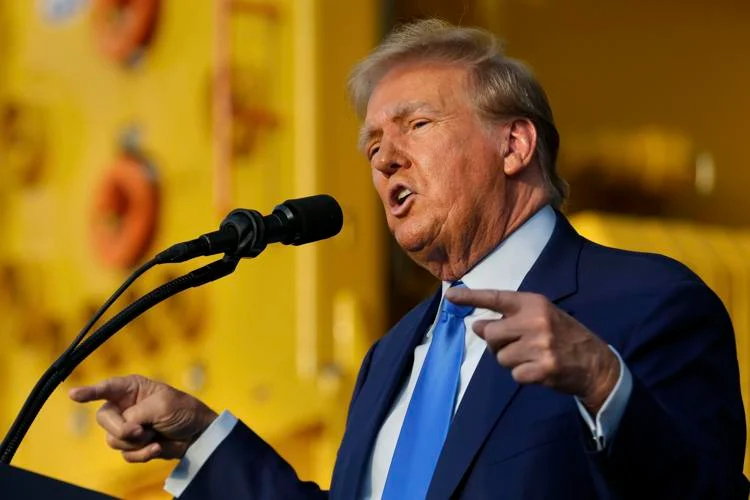The unprecedented Colorado Supreme Court decision disqualified Donald Trump from the 2024 ballot. Delve into the majority’s stance on insurrection allegations, dissenting views, and the potential impact on the upcoming election. As Trump’s campaign vows to appeal to the U.S. Supreme Court, follow the legal drama that could redefine the interpretation of constitutional eligibility for presidential candidates.
In a historic move, the Colorado Supreme Court delivered a groundbreaking decision disqualifying Donald Trump from the 2024 presidential ballot. The ruling, issued on December 19 in an unsigned opinion, marks the first time any state supreme court has directly addressed the substantive arguments surrounding a presidential candidate’s eligibility, particularly in light of allegations of insurrection.
The four-justice majority concluded that there was substantial evidence to label the events of January 6, 2021, as an insurrection, directly implicating Trump’s actions in the certification process. The dissenting justices, Chief Justice Brian D. Boatright and Justices Carlos A. Samour Jr. and Maria E. Berkenkotter, expressed concerns about the procedural aspects of the eligibility challenge while acknowledging the gravity of the allegations against Trump.
Trump’s campaign has promptly announced its intention to appeal the decision to the U.S. Supreme Court, setting the stage for a legal battle that could have far-reaching implications for the 2024 election.
The Basis of the Challenge
The challenge to Trump’s eligibility stems from the interpretation of Section 3 of the 14th Amendment, which disqualifies individuals from holding federal or state office if they have engaged in insurrection after taking an oath to support the Constitution. The petitioners, comprising four Republicans and two unaffiliated voters, argue that Trump falls under this category, rendering him constitutionally ineligible.
Denver District Court Judge Sarah B. Wallace had previously delved into the question, asserting that Trump’s actions on January 6 constituted an insurrection. However, she stopped short of disqualifying him from the ballot, emphasizing uncertainty about the intended application of Section 3 to the presidency.
The Colorado Supreme Court’s Majority Stance
The majority opinion dismissed Trump’s claims of inadequate defense due to the expedited nature of election proceedings, asserting that Colorado’s election protocols encompass constitutional challenges to a candidate’s eligibility. Crucially, the court declared that Congress does not need to pass additional legislation to enforce the disqualification provision, drawing parallels with the enforcement of the 13th Amendment’s prohibition against slavery.
Furthermore, the majority firmly rejected the notion that Section 3’s disqualification provision did not apply to the presidency. They argued that the presidency is undoubtedly an “office,” as understood by the drafters of the 19th century.
Finally, the majority contended that the evidence presented demonstrated Trump’s intent to overturn the election certification and prevent the peaceful transfer of power, emphasizing that his actions were not protected by the First Amendment.
Dissenting Views
The dissenting justices questioned the propriety of using Colorado’s expedited election procedures to address such a weighty constitutional matter. Chief Justice Boatright criticized the breakneck pace of the proceedings, suggesting that the district court did not comply with strict timelines.
Justice Samour went a step further, labeling the hearing a “procedural Frankenstein” and asserting that only Congress could authorize the enforcement of Section 3’s disqualification provision. He argued that Trump was not afforded due process and that the expedited case disadvantaged him unfairly.
Justice Berkenkotter, while acknowledging that the challenge could proceed in state court, expressed reservations about the appropriateness of existing protocols for such a momentous occasion.
Implications and Next Steps
The court has temporarily put its ruling on hold, anticipating a likely appeal to the U.S. Supreme Court. As the legal battle unfolds, the decision’s ramifications for the 2024 election and the broader interpretation of Section 3’s disqualification provision remain uncertain.
Steven Cheung, a spokesperson for Trump’s campaign, has expressed confidence that the U.S. Supreme Court will rule in favor of the former president. The outcome of this appeal is poised to shape the discourse around the eligibility of presidential candidates and the interpretation of constitutional provisions in the context of insurrection allegations.

Pretty! This has been a really wonderful post. Many thanks for providing these details.